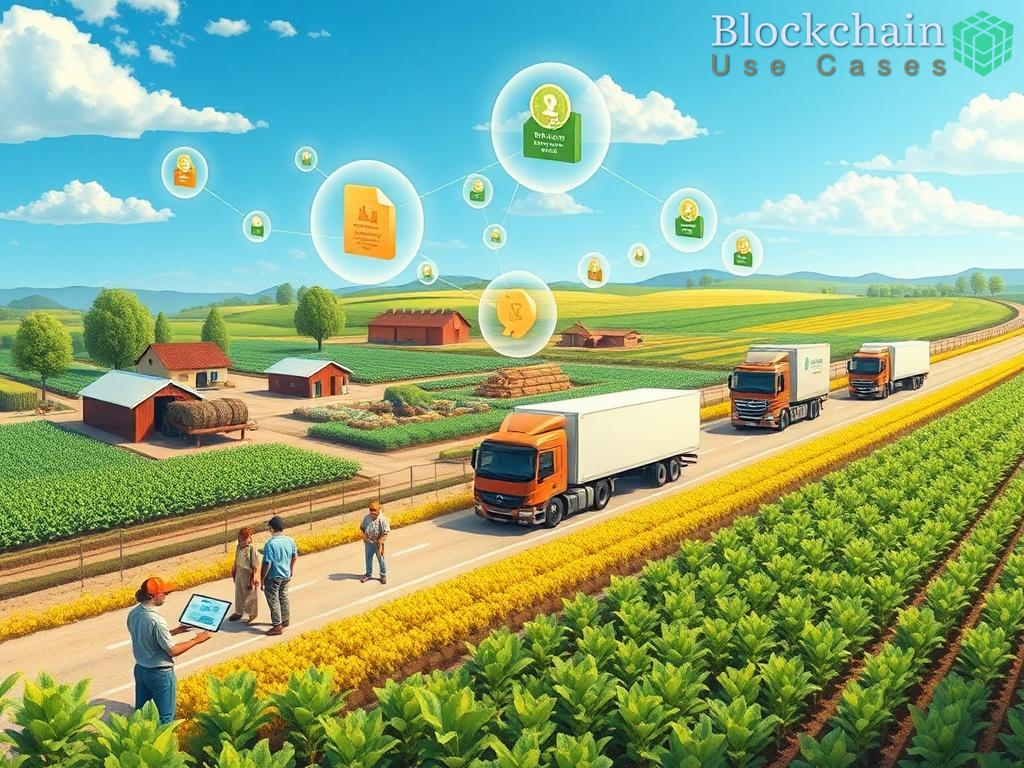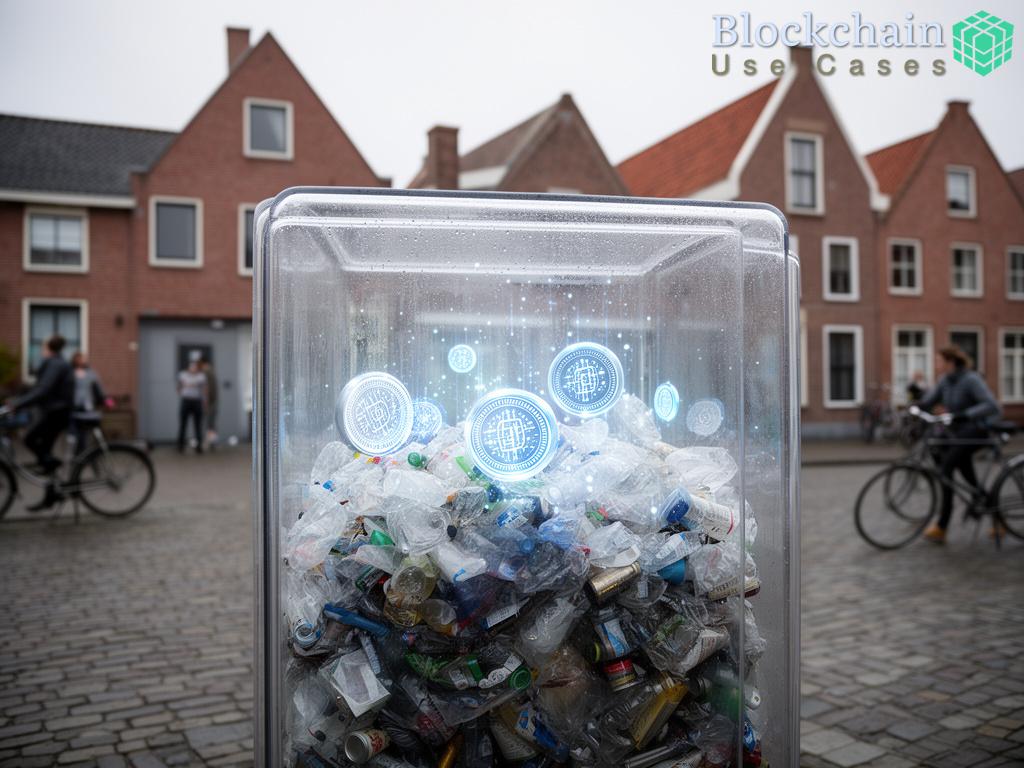Enhancing Transparency in Agricultural Supply Chains
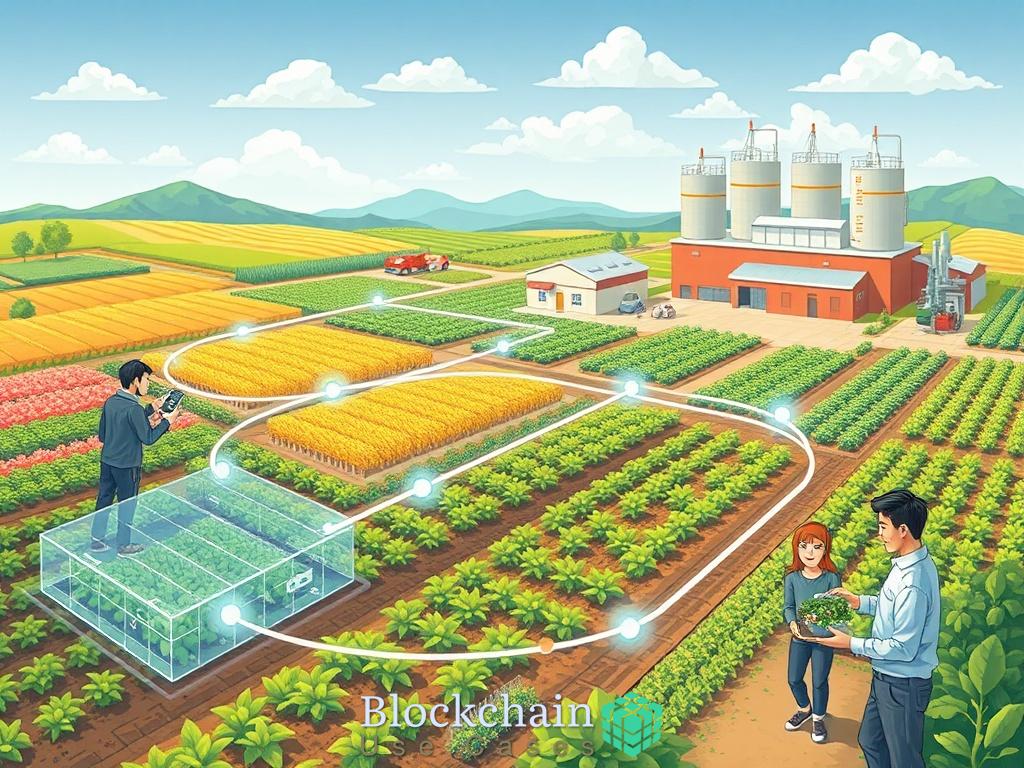
In an era marked by increasing consumer demand for sustainability and ethical sourcing, transparency within agricultural supply chains has become more critical than ever. As consumers become more conscious of where their food comes from, farmers, distributors, and retailers must adapt to these expectations. Blockchain technology offers a powerful solution to provide the transparency that modern consumers seek, enabling stakeholders to trace the origins and journey of agricultural products with unprecedented accuracy.
Blockchain technology operates on a decentralized ledger system, which inherently enhances traceability by allowing all transactions to be recorded in a secure and immutable manner. Each participant in the supply chain has access to the same information, reducing discrepancies and enhancing accountability. This approach not only builds consumer trust but also helps stakeholders identify inefficiencies and potential fraud in the supply chain.
Below is a list of key benefits that blockchain brings to agricultural supply chains:
- Real-Time Data Access: All parties can access up-to-date information regarding product status and location.
- Improved Food Safety: Quick identification of contamination sources can prevent widespread outbreaks.
- Enhanced Accountability: Each transaction is recorded, providing a clear history of the product.
- Streamlined Processes: Reduced paperwork and bureaucratic delays through automated record-keeping.
- Consumer Trust: Transparency fosters greater trust between consumers and producers.
Several pioneering companies have successfully implemented blockchain solutions to enhance transparency in their agricultural supply chains. For instance, a collaboration between IBM and Walmart has demonstrated how blockchain can track the provenance of food products, allowing for rapid tracing of contamination sources. Similarly, companies like Provenance and VeChain have developed platforms that empower farmers and consumers alike, ensuring that every step of the product’s journey is documented and verifiable.
| Company | Implementation | Impact |
|---|---|---|
| IBM & Walmart | Food safety and traceability | Reduced tracing time from 7 days to 2.2 seconds |
| Provenance | Consumer engagement and transparency | Increased sales through verified sourcing |
| VeChain | Supply chain management | Enhanced operational efficiency |
Implementing Smart Contracts for Crop Transactions
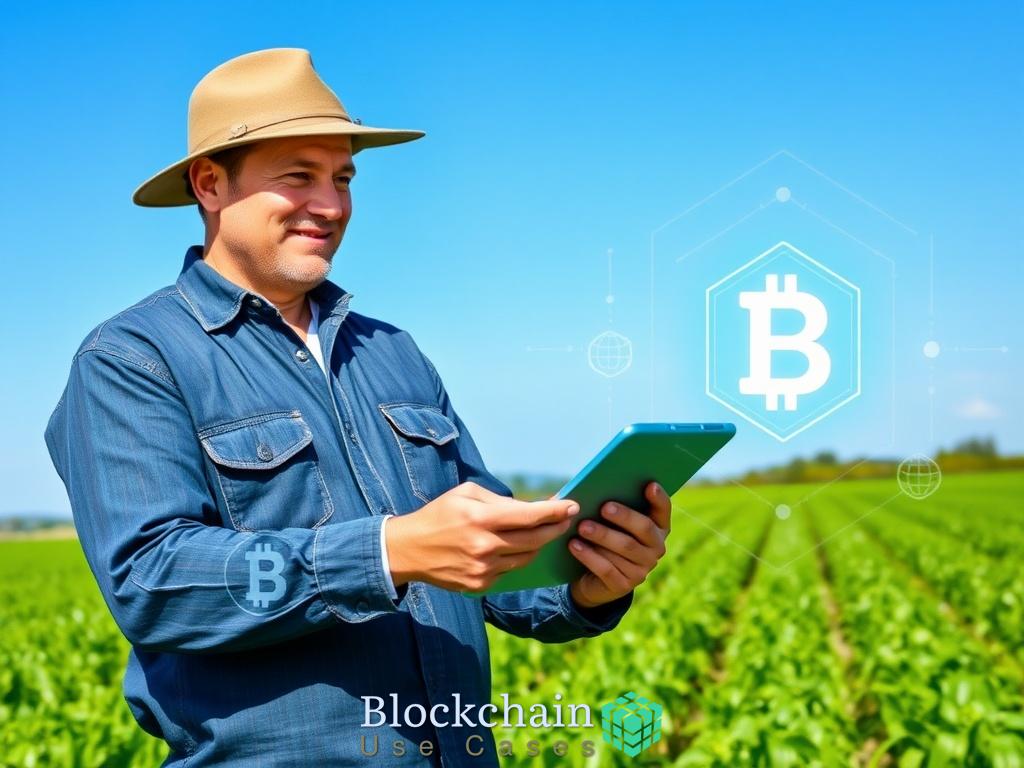
As the agricultural industry increasingly embraces technology, the integration of smart contracts into crop transactions represents a significant advancement. These self-executing contracts, with the terms of the agreement directly written into code, offer a myriad of benefits that streamline operations and enhance trust among all parties involved. By automating processes, smart contracts can significantly reduce the time and effort required for traditional contract management, ultimately leading to a more efficient agricultural supply chain.
Streamlining Financial Transactions in agriculture is often fraught with delays and uncertainties. Smart contracts can facilitate instantaneous payments upon the fulfillment of predefined conditions. For instance, when a farmer delivers a specified quantity of produce to a distributor, the smart contract automatically triggers payment, ensuring that farmers receive timely compensation for their goods. This automation not only mitigates the risk of payment disputes but also enhances liquidity for farmers, enabling them to invest in future crop cycles more effectively.
The implementation of smart contracts also enhances trust and compliance among supply chain participants. With all terms and conditions encoded and visible on the blockchain, each stakeholder can independently verify compliance without the need for intermediaries. This transparency significantly reduces the potential for disputes, as all parties have access to the same information regarding order fulfillment, quality standards, and payment terms. Furthermore, it encourages adherence to ethical sourcing and sustainability practices, as stakeholders can track compliance in real time.
Reducing Fraud and Enhancing Security is another critical advantage of smart contracts in agricultural supply chains. By leveraging blockchain technology, these contracts are not only tamper-proof but also immutable. Once a smart contract is deployed, it cannot be altered, which provides a high level of security against fraudulent activities. This is particularly important in an industry where issues like product misrepresentation and counterfeit goods can have severe repercussions for consumers and businesses alike.
Adopting smart contracts also paves the way for predictive analytics and data-driven decisions. By collecting data through various stages of the supply chain, stakeholders can analyze trends, optimize logistics, and forecast demand more accurately. This insight not only improves operational efficiency but also allows for better resource allocation, ultimately resulting in higher profitability for farmers and distributors alike.
Leveraging IoT and Blockchain for Real-Time Traceability
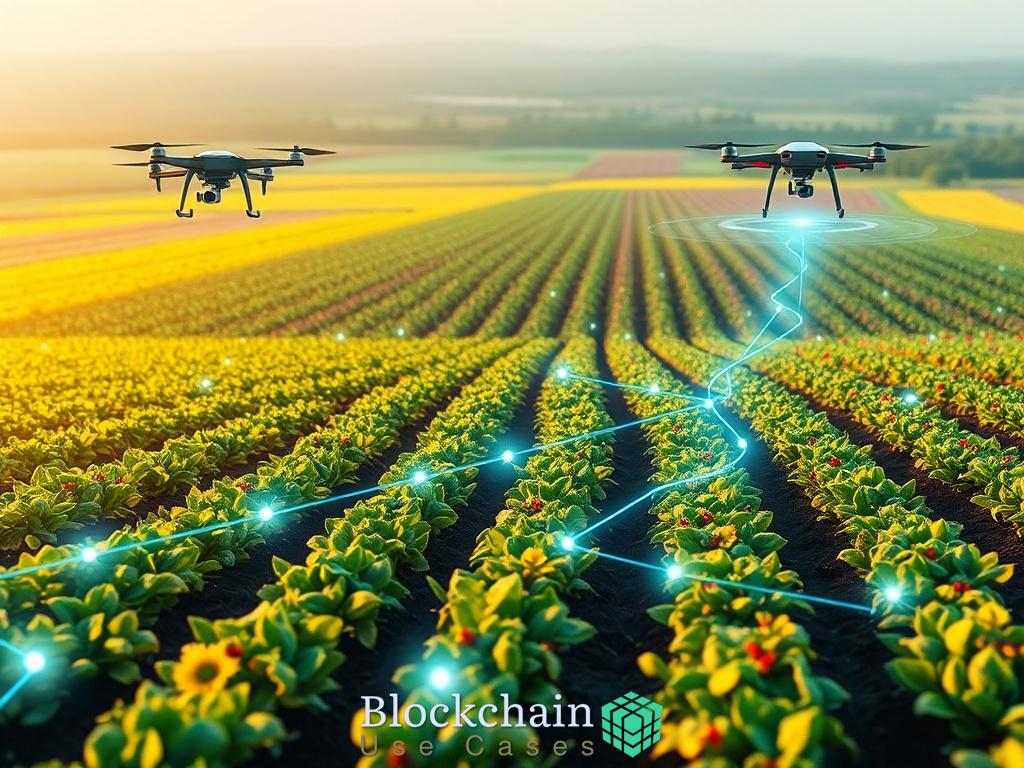
As the agricultural sector continues to adapt to the digital age, the integration of Internet of Things (IoT) devices with blockchain technology emerges as a game changer for real-time traceability. This innovative approach not only enhances the visibility of products throughout the supply chain but also fosters greater collaboration among stakeholders. By harnessing the power of IoT sensors and devices, agriculture can achieve a level of traceability that was previously unattainable, ensuring that every stage of food production is monitored and recorded securely.
The synergy between IoT and blockchain technologies allows for seamless data collection and transmission. IoT devices can monitor critical parameters such as temperature, humidity, and soil conditions, collecting data in real-time as agricultural products move through the supply chain. This information is then securely recorded on a blockchain ledger, creating a comprehensive digital footprint of the product’s journey.
With this setup, stakeholders can access real-time data regarding environmental conditions that affect product quality. For example, if a shipment of perishable goods experiences temperature fluctuations, the data captured by IoT sensors can trigger alerts, allowing for immediate corrective actions. Consequently, this proactive approach not only safeguards product integrity but also enhances consumer trust in the safety and quality of their food.
The combination of IoT and blockchain technologies yields numerous advantages that can revolutionize agricultural supply chains:
- Real-Time Insights: Stakeholders can access immediate data about product conditions, allowing for informed decision-making.
- Enhanced Traceability: Every change in product status is recorded, ensuring a complete history from farm to table.
- Scalability: The flexible nature of IoT devices allows for easy integration into existing systems, accommodating farms of all sizes.
- Improved Accountability: With comprehensive data tracking, all parties can verify compliance with standards and regulations.
By adopting a framework that combines IoT and blockchain technology, agricultural businesses can not only improve their operational efficiency but also build a more resilient supply chain. This transformation is essential for meeting the growing demands of consumers who prioritize transparency and sustainability in their food choices.
The Role of Decentralization in Food Safety
In the quest for enhanced food safety, decentralization emerges as a fundamental principle that supports the integrity and reliability of agricultural supply chains. By distributing control and access across various participants in the supply chain, blockchain technology ensures that no single entity holds absolute power over data, thereby reducing the risk of manipulation and fostering a culture of accountability. This decentralized framework not only enhances transparency but also creates a robust environment for collaborative monitoring of food safety standards.
Empowering Stakeholders Through Decentralization
Decentralization transforms the dynamics of food safety by empowering all stakeholders involved in the agricultural supply chain—from farmers to retailers. Each participant can securely access and verify crucial information regarding product origins, handling practices, and safety standards. This increased access fosters a sense of ownership and responsibility among stakeholders, as they are now co-guardians of food safety. For instance, farmers can provide real-time data on their farming practices, while distributors can ensure that products are stored under optimal conditions. This collaborative approach effectively mitigates risks associated with foodborne illnesses and contamination.
Real-Time Response and Accountability
The decentralized nature of blockchain technology allows for real-time tracking of products throughout the supply chain. In the event of a food safety issue—such as a contamination outbreak—stakeholders can quickly trace the problem back to its source. This rapid identification is critical in preventing widespread health crises and minimizing economic losses. With every transaction recorded immutably on the blockchain, accountability is heightened; stakeholders can be held responsible for their actions and adherence to safety protocols. Moreover, this transparency discourages negligent practices and promotes a culture of compliance, ultimately leading to safer food products for consumers.
Building Consumer Confidence Through Decentralized Transparency
As consumers increasingly demand transparency regarding the safety and origins of their food, decentralization plays a pivotal role in meeting these expectations. By providing consumers with direct access to verifiable data about agricultural products, blockchain technology fosters trust and confidence. Consumers can trace the complete journey of their food, from farm to table, ensuring that it meets their safety standards. This level of accessibility encourages producers to maintain high-quality practices, knowing that their processes are subject to public scrutiny.
In conclusion, decentralization in agricultural supply chains, facilitated by blockchain technology, profoundly influences food safety. By empowering stakeholders, enabling real-time responses, and building consumer confidence, this innovative approach not only enhances the integrity of food systems but also aligns with the growing demand for transparency and accountability in the food industry.
Blockchain Solutions for Reducing Supply Chain Fraud
In the modern agricultural landscape, the integrity of supply chains is paramount. The prevalence of fraud, from counterfeit products to mislabeling, poses significant threats not only to businesses but also to consumer safety. Blockchain technology, with its inherent properties of transparency and immutability, presents a formidable strategy to combat these issues. By implementing blockchain solutions, stakeholders in the agricultural sector can significantly enhance the security and reliability of their supply chains.
Combatting Counterfeit Products is one of the foremost challenges in agricultural supply chains. Counterfeit goods not only undermine consumer confidence but also jeopardize public health. Blockchain empowers producers to register their products on a decentralized ledger, creating a verifiable history of authenticity. Each transaction—from farm to distributor and onto the retailer—is recorded in a manner that is tamper-proof. This makes it virtually impossible for counterfeit products to infiltrate the supply chain unnoticed. As a result, consumers can confidently purchase agricultural goods with the assurance of their authenticity.
Additionally, the integration of smart contracts within blockchain frameworks enhances the ability to reduce fraud. These self-executing contracts automatically verify compliance with specified conditions before transactions are executed. For instance, if a supplier fails to meet quality standards, the smart contract can trigger automatic penalties or halt the transaction altogether. This layer of automation not only eliminates potential loopholes that fraudsters could exploit but also streamlines operational processes, thereby fostering a more trustworthy environment for all participants in the supply chain.
Moreover, the collaborative power of blockchain encourages a culture of accountability among all stakeholders. With every participant having access to the same immutable data, transparency is inherently amplified. This shared visibility allows stakeholders to monitor each other’s practices, discouraging fraudulent activities. For example, retailers can verify the sourcing claims made by suppliers, ensuring that claims of organic or fair-trade practices are genuinely upheld. This interconnectedness not only fortifies the supply chain against fraud but also cultivates a sense of community and shared responsibility.

